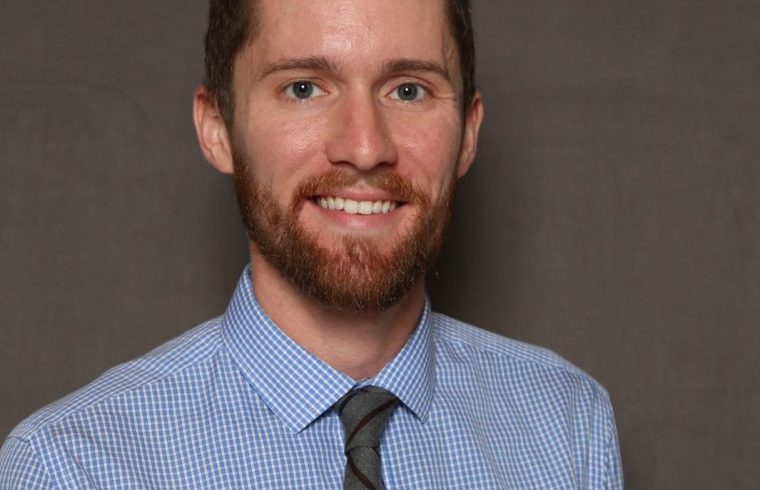In May 1933, the Nazi-sympathizing German Student Union entered Magnus Hirschfeld’s Institute of Sexual Research in Berlin.
Hirschfeld’s expansive library of sexual and gender studies was confiscated and later burned in the streets of the German capital, one of many book burnings in Nazi Germany that would decimate the records of this pioneering institute.
Some of the Institute’s records were of the countless sexual and gender minorities who passed through its doors between 1919 and 1933, and even earlier, when Hirschfeld ran the Scientific-Humanitarian Committee, the institute’s predecessor and world’s first LGBTQ rights organization.
“The Nazis tried to destroy information about that group by burning the books and magazines and photographs that were in that amazing institute,” independent historian Jonathan Ned Katz, founder of OutHistory.org, said.
However, despite the Nazi’s best efforts and thanks to Katz’ research, the name of one of the earliest activists for gay rights in America has been revealed: Rev. Karl Schlegel, a German who immigrated to the United States in the late 19th century. (He was also known as Carl or Charles while living in America.)
Based on newly unearthed records that have been uploaded to OutHistory’s website, it appears Schlegel both harbored same-sex attractions and advocated on behalf of homosexuals, bisexuals and asexuals over 100 years ago.
Born in Germany in 1863, Schlegel immigrated to the United States in 1878 at age 15 and later preached as a minister. According to OutHistory.org, an August 1903 edition of the Scientific-Humanitarian Committee’s journal said that Schlegel visited the committee “numerous” times and “aims at an association of his Uranian fellow ministers as well as the founding of a subcommittee in New York.”
“Uranian” is an English translation of the early German word for homosexual: urning.
“Schlegel apparently considered other homosexual Protestant ministers good candidates for his U.S. emancipation organizing,” Katz wrote.
Between September and November of 1903, during a trip to Germany, Schlegel was arrested for an alleged sexual offense and later released. “Hopefully this unpleasant incident will be without further fateful consequences for him professionally,” the Scientific-Humanitarian Committee’s journal wrote at the time.
In 1905, after being dismissed from his position at the First German Reformed Protestant Congregation in New York City, Schlegel relocated to New Orleans. The Times-Picayune announced his first sermon on March 27, 1905.
But less than a year later, in December 1906, the New Orleans Presbyterian Church was investigating Schlegel for unnamed “rumors.”
The church elders met and charged Schlegel with multiple counts of disseminating and defending “the naturalness and lawfulness of Sodomy, otherwise called ‘Homosexuality’ or ‘Uranism,’” according to Presbyterian Church records from that time. Schlegel pleaded not guilty, and the Presbyterian Church proceeded to trial. Entered into evidence was a German language copy of the Yearbook for Sexual Intermediate Types, the annual publication of the Scientific-Humanitarian Committee. The panel found Schlegel guilty.
Church records quote him as saying on Jan. 29, 1907: “Let the same laws for all the intermediate stages of sexual life: the homosexuals, heterosexuals, bisexuals, asexuals, be legal as they are now in existence for the heterosexuals, that is, they should be under punishment: First, if they use compulsion. Second, if they are found to offend publicly. Third, if they use or misuse children, are dangerous and corrupting and will lead only to evil.”
The church judges responded by calling his views “evil and only evil” and finding him “totally disqualified for the office of the Christian ministry” and “do prohibit him from exercising any of the functions thereof.” By January 1907, Schlegel was jobless thanks to his LGBTQ activism.
Schlegel returned to New York, and by 1912, the New York Herald wrote that he had become a “spiritualist,” a religious movement that communicates with spirit popular at the time.
Schlegel died July 25, 1922, in New York City. He is buried at grave number 18004 at the Evergreens Cemetery in Brooklyn, New York.
“I aspire to picnic there and say hello to the Rev. Schlegel and thank him for his early emancipation activities,” Katz told NBC News.
Katz said he hopes that this is “just the beginning” of learning about Schlegel’s life, and he encouraged members of the public with more relevant information to contact OutHistory.org.












